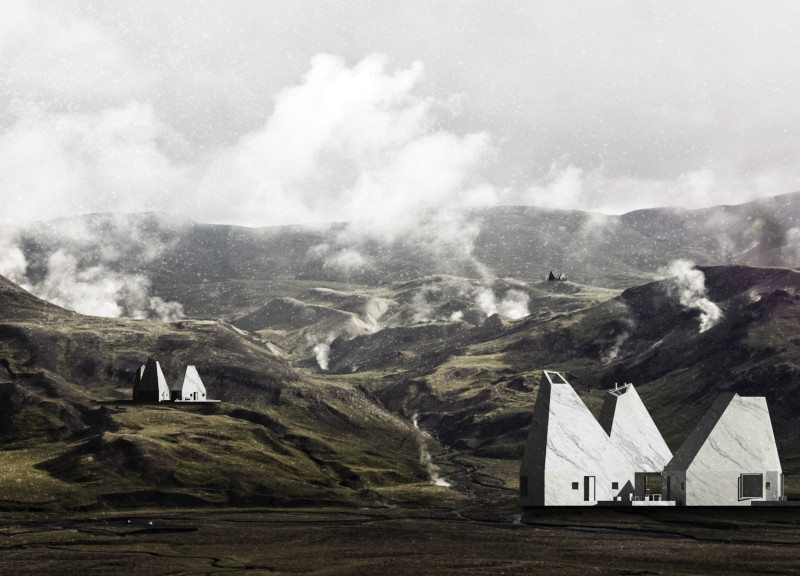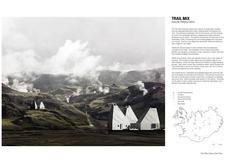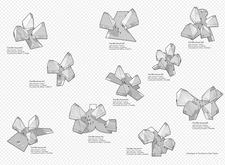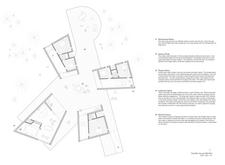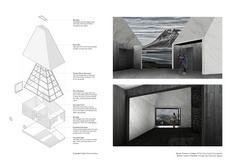5 key facts about this project
## Overview
The Trail Mix Trekking Cabins are situated in Iceland, designed to accommodate trekkers and enhance their experience within the rugged landscapes. The project explores the relationship between natural topography and architectural design, providing living spaces that resonate with the surrounding environment. The configuration of the cabins promotes not only private retreat but also communal interaction, aiming to cultivate ecological awareness among users while aligning with the principles of contemporary architecture.
## Spatial Strategy
The design emphasizes a flexible arrangement of cabin types to cater to varying group sizes and needs, fostering adaptability in social interactions. Private cabins offer seclusion and comfort, while collective cabins are intended for communal use, encouraging connections among guests. Additionally, external plinths serve as pathways and gathering spaces, integrating movement throughout the site and enhancing the overall user experience. The minimalist approach to spatial organization allows for simplicity while accommodating diverse activities through modular outdoor furniture arrangements.
### Material Composition
Material choices are integral to the cabins' aesthetic and functional performance. Concrete serves as the primary structural material, ensuring longevity and durability, while aluminum skin provides reflectivity and thermal efficiency. Locally sourced timber is incorporated in roofing to establish a meaningful connection to traditional Icelandic building practices, complementing the contemporary design. Large pivot windows enhance natural ventilation and offer expansive views of the surrounding landscape, while steel elements contribute to structural stability. These materials are selected to harmonize with the local ecology, emphasizing both the buildings' resilience and their visual integration into the environment.
## Sustainability
Sustainability is a key consideration throughout the design process, with features such as solar panels, effective insulation, and the use of locally sourced materials reflecting a commitment to environmental responsibility. This focus on eco-friendliness extends to the operational strategies of the cabins, promoting resource sharing among users. The design facilitates a sense of community by encouraging collective experiences and stories, reinforcing the notion of shared adventure in the natural landscape.


